The Sci-Fi Series Trying To Save Itself By Becoming Prometheus At The Last Minute
If Ridley Scott couldn't do it, can Star Trek: Discovery?
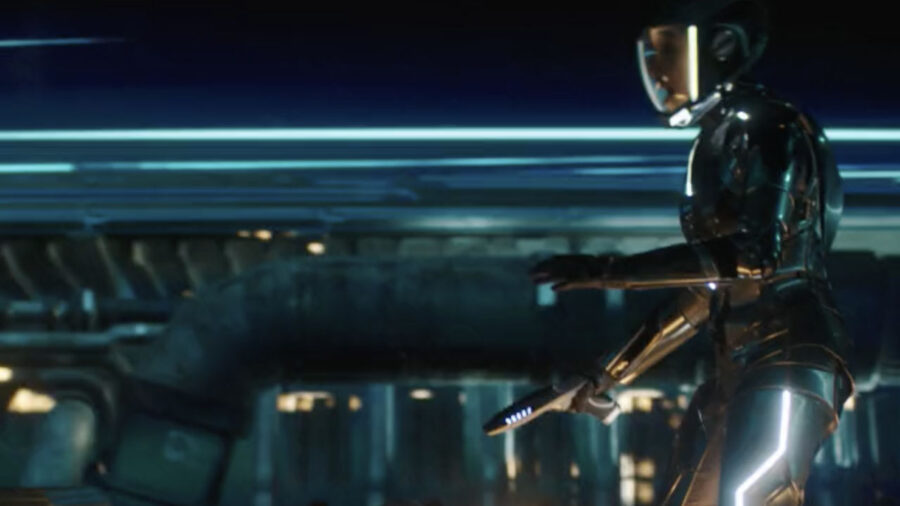
Someone at Star Trek: Discovery must have watched Star Trek: Picard Season 3, because the fifth season kicks off with a half-hearted attempt to duplicate the way in which Picard’s third season saved the show from being one of the worst things Star Trek has ever made. The Discovery team learned some of the right lessons from Picard’s success, but they’re unable to use those lessons to fix Discovery.
Star Trek: Picard Season 3 fixed everything that was wrong with the show by largely ignoring the previous two seasons, fully resetting, and going in an entirely different direction. Picard Season 3 showrunner Terry Matalas didn’t just change the style and tone of the show or add a couple of new characters; he fired virtually the entire cast and replaced them with characters that brought different elements to the show.
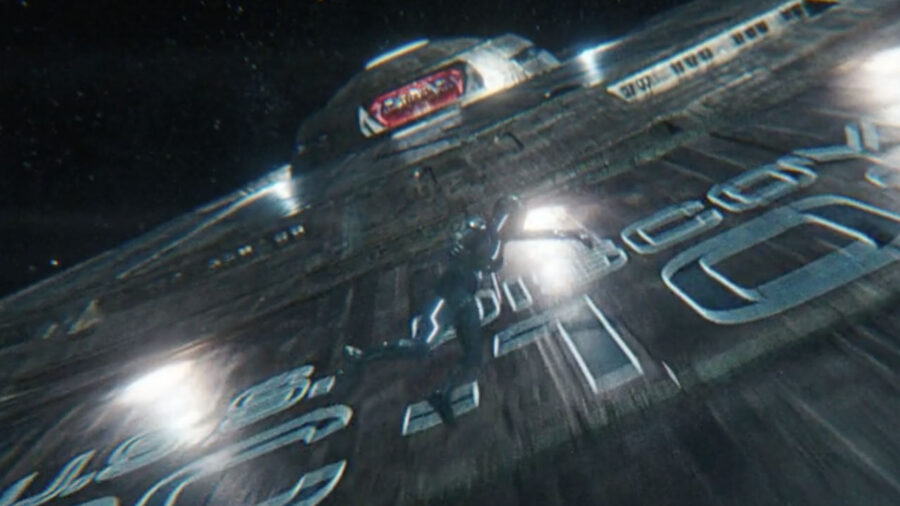
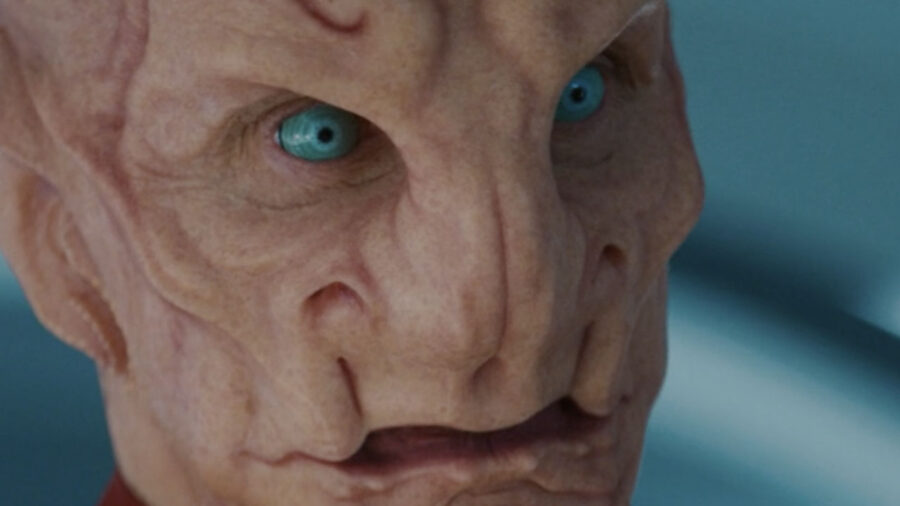
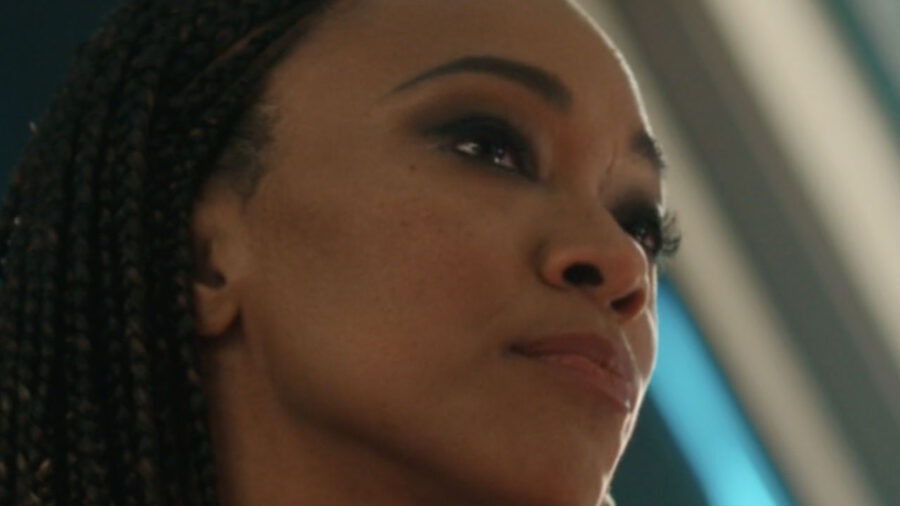
Star Trek: Picard could do that because of the self-contained nature of the show’s previous two seasons. Star Trek: Discovery, lumbering into its fifth season, is too loaded down with linearly created baggage to pull off that kind of full reboot. Maybe they could have done it in the show’s third season, but this is its fifth, and it’s much too late for a reset like that.
So instead, Star Trek: Discovery is limping into its final episodes, forced to keep what it has and then try to improve it by adding in the same kinds of elements Picard added. The season’s first episode quickly introduces us to a new character named Captain Rayner (Callum Keith Rennie), a man so out of step with everything Discovery has been doing for five seasons that he’s a cranky, miserable breath of fresh air from the first moment his voice floats over Captain Michael Burnham’s (Sonequa Martin-Green) com channel.
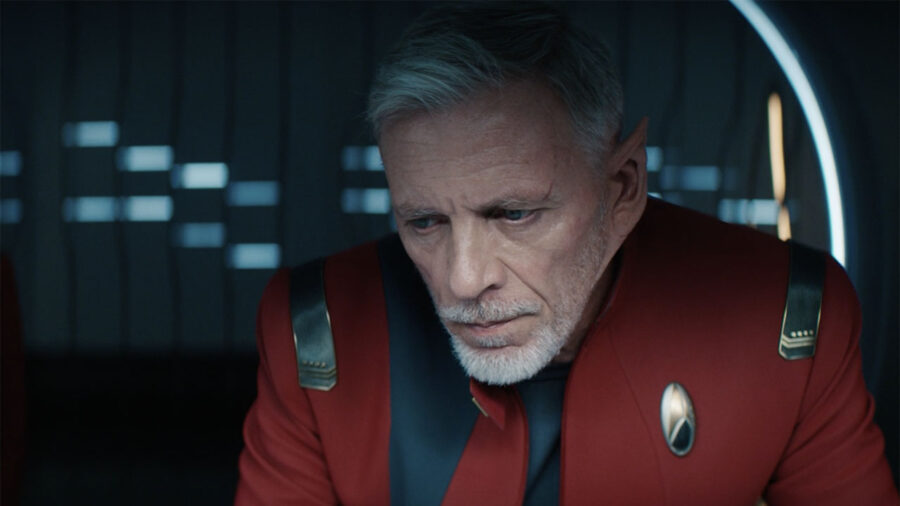
Rayner is the Star Trek: Discovery version of Picard Season 3’s Captain Liam Shaw (Todd Stashwick). He’s grumpy and disagreeable. He doesn’t care what the existing cast of Discovery wants, and he’s not interested in their many many hugs. He’s there to point out how stupid they are, and he does it as much as the show allows.
In the season’s first two episodes, he’s a minor player, but by the end of Season 5 Episode 2, Discovery makes it clear that he’ll be a pivotal and permanent part of the cast for the rest of its final season. And while Callum Keith Rennie isn’t quite as good in this role as Todd Stashwick was on Picard, he’s close. The more Rayner the show gives us, the better.
In the meantime, we’re saddled with the rest of the crew, a group of people whose screen time largely consists of characters reciting lines that sound like they came from a batch of motivational fortune cookies. Every now and then, they stop thanking (I counted 19 uses of the phrase “thank you” in just the first two episodes) and hugging each other long enough to shoot at something. Once that’s done, though, it’s right back to hanging out and telling themselves how amazing and inspiring they are. It’s Season 5; these characters are long past saving.
Star Trek: Discovery does deserve some credit for improving the narrative structure of its writing in Season 5. In previous seasons, things just sort of happened without any true logical progression. Plot holes were written as if they were presents meant to be loved and cherished rather than major problems with the show’s scripts.
For the first two episodes at least, that’s over with. Season 5 sets up a clear narrative for the season about a search for a hidden treasure.
This overarching plot for Star Trek: Discovery’s fifth season is fantastically uncreative and simple-minded, but given the demonstrably weak talents of the people making this show, giving them something simple to write is likely the only way to get stories that don’t feel like they were stuck together with chewing gum.
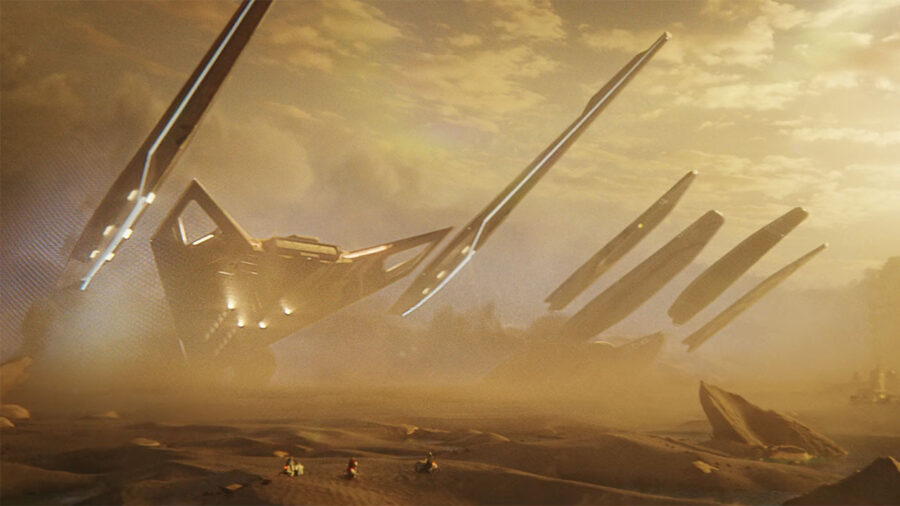
It helps that this new season plot revolves around the past adventures of Captain Jean-Luc Picard. It’s based on one of the mysteries Picard left hanging during the run of Star Trek: The Next Generation. It’s one of those things Star Trek fans have always wondered about but never got an answer to.
Unfortunately, Discovery is turning that hanging chad of a Trek mystery into a story that is basically Star Trek V: The Final Frontier. Incidentally, it’s also the exact plot of the movie Prometheus. Both The Final Frontier and Prometheus are regarded as failures, so it’d be a surprise if Star Trek: Discovery somehow made this story idea work when a genius filmmaker like Ridley Scott couldn’t.
For the past four seasons, watching Star Trek: Discovery has been like watching the movie Step-Brothers without any of the jokes. It’s a string of scenes in which characters over-emote and overreact to vague challenges, with little narrative connection between one moment and the next. In season 5, the series has made some minor improvements. Those improvements won’t save the show, but they are making it more bearable.
At this point, minor improvements are the most anyone can ask from Star Trek: Discovery. There’s a reason it’s being canceled after only five seasons.

DISCOVERY SEASON 5 SCORE
Star Trek: Discovery Season 5 is now streaming on Paramount+. Only the first two episodes were available when this review was written.












